This guide to things to know before traveling in Iran was updated in 2019. We have spent a total of 3 months in Iran to compile this guide. Iran is by no means a difficult country to travel to. However, there are some things you should know before you travel to Iran. This list will help you prepare the perfect trip to Iran.
Lost with Purpose is blocked in Iran. To access Lost with Purpose in Iran, use a VPN. We recommend ExpressVPN. Read more about VPNs in Iran here.
Iran, officially the Islamic Republic of Iran, has long been closed-off from the rest of the world, but times, they are a-changin’. Visa policies are relaxing and Iran is gaining a reputation as the next hot destination.
To make your trip to Iran a bit easier, here’s a master list of everything you need to know if you want to travel to Iran, including great Iran travel tips.
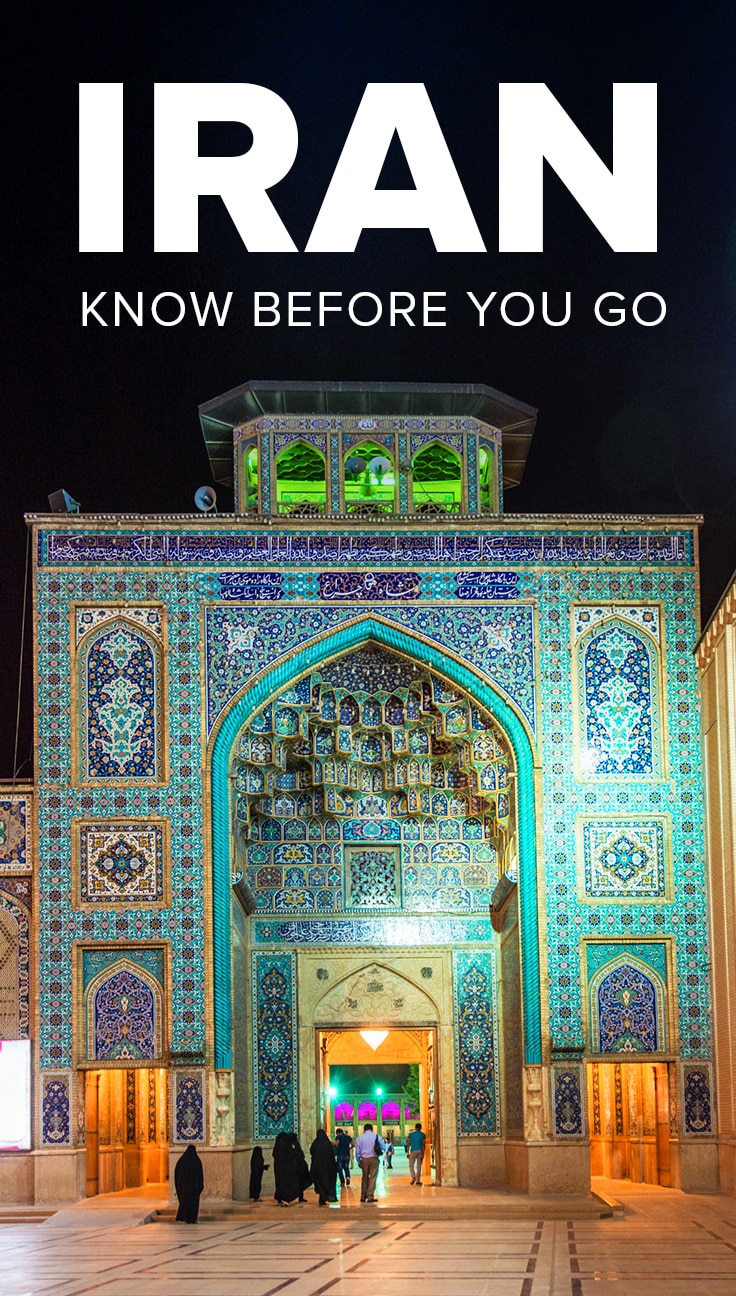
Guide to travel in Iran: Everything you need to know before visiting Iran
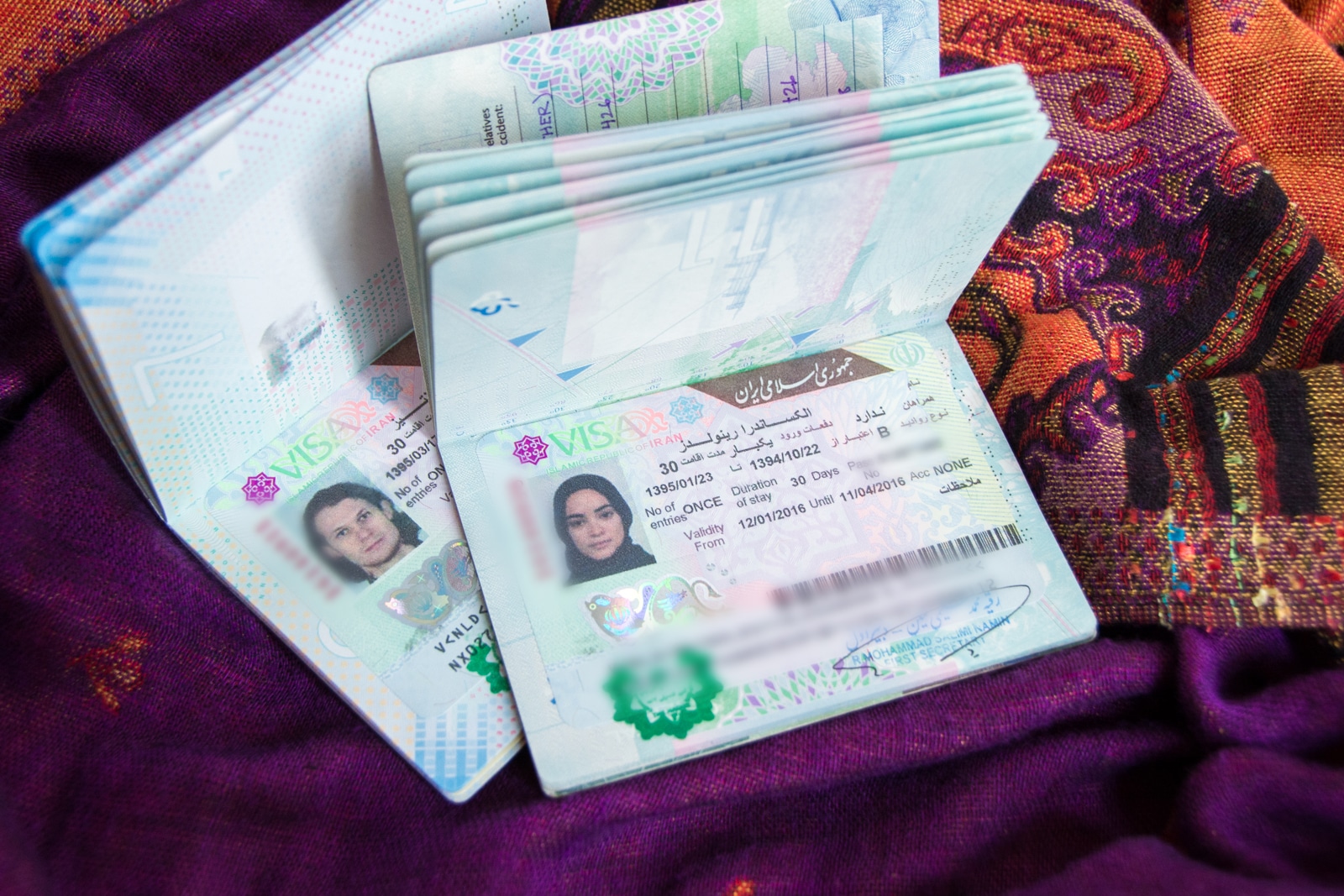
Visas for Iran
- Visas on arrival are only available at airports. A visa on arrival is valid for 30 days. Overlanders, you’ll have to get a tourist visa at an Iranian embassy or consulate ahead of time. If you need help with your visa, we recommend 1stQuest (use promo code LWP-QST for a 5% discount).
- If you can’t get a visa on arrival, you need to get a tourist visa at a consulate. Citizens of the United States, United Kingdom, Canada, Bangladesh, Jordan, Iraq, Afghanistan, and Pakistan need to get a consular visa before they travel to Iran. If you’re from one of these countries, you need to get an authorization number before applying for the visa. People from other countries have to apply online first via Iran’s e-visa portal.
- If there is proof of entry to Israel in your passport, you cannot travel to Iran. This also applies if you have land border entry/exit stamps from countries neighboring Israel. Want to get around this? See if your country allows applications for a second passport for special circumstances.
- UK, US, and Canadian citizens cannot travel to Iran without a guide. Due to recent changes in Iran’s travel policy, travelers from the United States, United Kingdom, and Canada can’t travel to Iran independently. Citizens from these countries have to be on a tour to travel to Iran. We recommend 1StQuest for this (use the code LWP-QST to get a 5% discount).
Check out our two-week itinerary for Iran for inspiration on where to go in Iran!

Rial rial bills, yo.
Money in Iran
- International cards don’t work in Iran. Forget ATMs–thanks to the sanctions, you have to bring all the money you’ll need in cash, and change money once in Iran. Dollars are the best, but euros work, too.
- Exchange money at currency exchanges. Exchanges give better rates than the government-controlled banks. If not labeled “Exchange”, look for small shops similar to jewelry stores that have foreign banknotes in the window.
- Iranian rial is the official currency of Iran.
- Prices are given in toman, not rials. 1 toman = 10 rials. People will also abbreviate: for example, if someone tells you something is “5”, they mean 5,000 toman/50,000 rials. It’s confusing in the beginning, but you’ll get the hang of it! Just add an extra “0” to the price to figure out the price in rials. Luckily, people in Iran are very honest and will let you know when you’re making a mistake. Tourist establishments are the exception to this–they usually list prices in rials.
- Keep your dollars close at hand. Don’t let people see how much money you have. Though theft isn’t very common, you don’t want to be trapped because something happened to your only supply of cash for the trip. Not all guesthouses and hotels have safes or lockers, so for god’s sake, please get a money belt. We can’t recommend them enough.
- If you do lose your money or run out of cash, carpet sellers in tourist areas can occasionally charge credit cards for a fee. The fee is around 10-20% of the transaction, so only use this as a last resort.
Pro Iran travel tip: Iran is a cash only economy. This means you’ll have to walk around with large wads of rials. If you don’t feel comfortable about this, check out Mah Card. Mah Card is a prepaid debit card specifically designed for travelers in Iran. Use the promo code LOSTWITHPURPOSE to get a 40% discount on Mah Card.
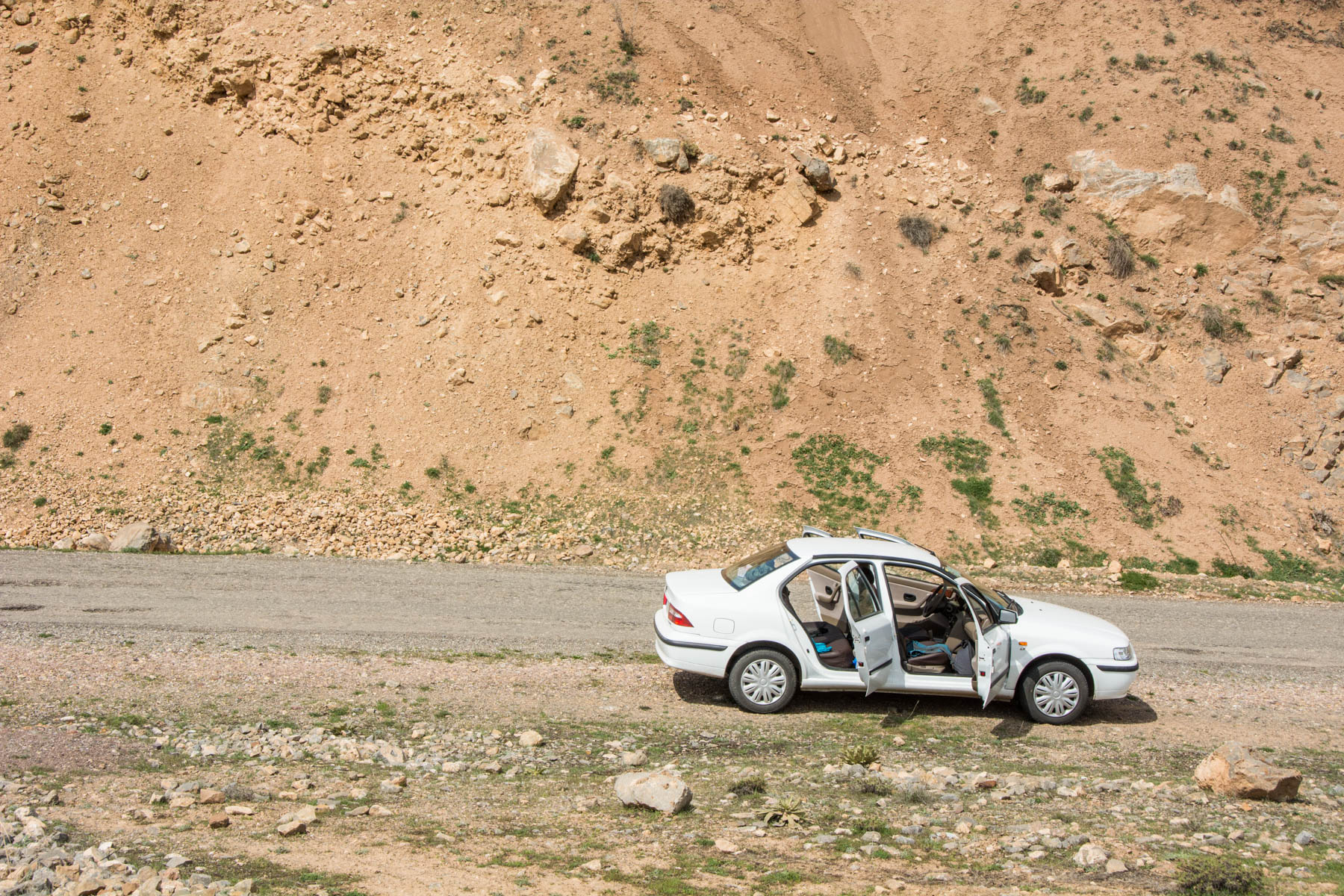
Does this explain the safety situation well enough? We left the car like this for half an hour, and nothing happened to it.
Safety in Iran
- Iran is extremely safe for foreigners. You won’t have to worry about violent crime when you visit Iran, and petty theft is rare. Let’s Go Iran’s safety page sums things up quite nicely. As for worries about ISIS? Um, ISIS has never occupied any space in Iran. You’ll be fine.
- Be careful when talking politics, and don’t insult the Supreme Leader. Speaking badly of the government is punishable by law, so be careful who you talk to. It’s best to pretend to be ambivalent, despite many Iranians being very open about their discontent.
- It’s okay to go to strangers’ homes. They just want to show you the famous Iranian hospitality! If someone invites you, do accept. Girls, take note: if a man invites you, it’s not proper to accept unless his wife or other women are present, or you’re traveling with a boy.
- Don’t take photos of power plants, factories, transportation hubs, or anything military or police when you visit Iran. You don’t want to look like a spy. The government does not like spies and people have been detained for being too close to military installations.
- Hotels will keep your passports while you stay. However, you’re required by law to always have your passport on you. Either carry around copies of your passport while outside or give the hotel copies and ask for your passport back. Make sure you have a copy of the information page and the page with your Iranian visa, including your entry stamp. You can do this once in the country–there are cheap copy shops everywhere in cities.
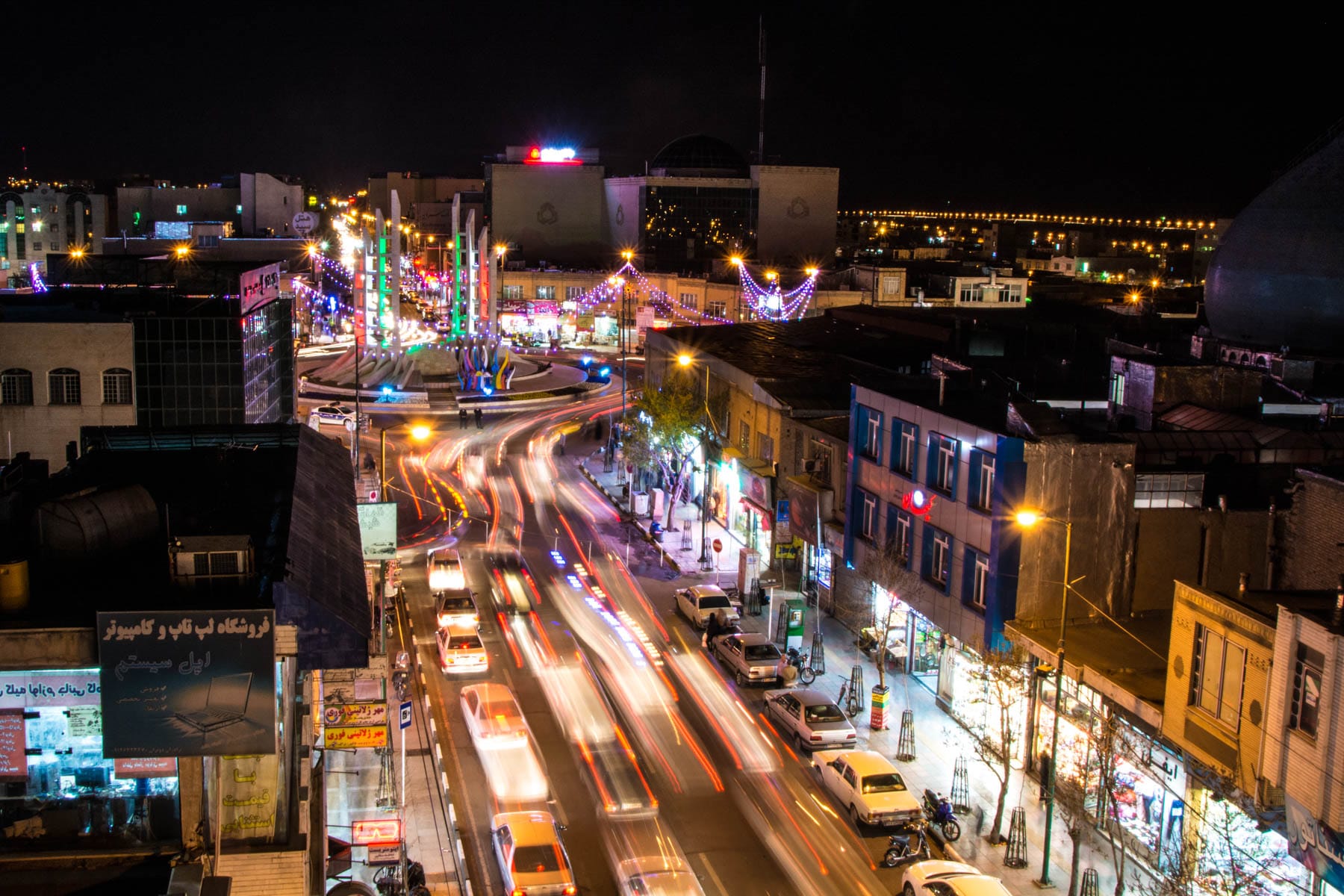
Transportation in Iran
- Buses are the cheapest and most common form of transportation between cities. There are also domestic airlines, for those that want to save time and don’t mind paying a bit extra. 1StQuest can help with domestic flight bookings (use promo code LWP-QST to get a 5% discount on your bookings).
- Iran also has its own ride-hailing app called Snapp. We recommend downloading it. Otherwise, you have to haggle for your taxi, which can be difficult, especially when you’re not sure where your destination is. We wrote a guide on how to take taxis without getting ripped off, but a good rule of thumb is to haggle for 60-80% of the quoted price unless it seems abnormally high. Taxis within cities should never be more than 100,000 rials or so.
- Want a comfortable bus ride? Get a VIP ticket. VIP buses have bigger seats that recline further, and you usually get a snack box for the road. They’re usually twice the price of mahmoolys, regular tour buses.
- Don’t sit next to people of the opposite sex unless you know them. It’s an unspoken rule, and people will often shuffle around on buses and in cars to get the order right. If there’s no other option, just sit–it’s not the end of the world.
- Any car can be a taxi. Enterprising locals will often act as unofficial taxi drivers. It’s fine to use their cars, and they’re a bit more flexible with their pricing than official taxis.
- Many city buses require transportation cards. The cards are sold at little huts next to bus stops. The price of a ride with the card is several hundred rials cheaper than without.
- Iranian drivers are insane. You’re going to see a lot of speeding, swerving, and sparse seatbelt usage when you travel to Iran. Prepare yourself.
- If the driving makes you nervous, stick to official taxis/savaris when traveling between cities. Official taxi drivers and bus drivers have to adhere to speed restrictions, which limits their stunts to a minimum. If that’s not possible… just close your eyes and pray to Allah.
- Don’t expect buses to stop for food. Roadside snack stalls are usually your only option, so make sure to stock up on food and drinks along for long bus journeys. However, most buses have a supply of water somewhere, and VIP buses usually give out snack boxes.
- You can ask a bus driver to take a toilet stop. They’ll occasionally stop for guys to take a roadside leak, but ladies have to be more vocal about nature’s call.
Pro Iran travel tip: It has recently become possible to book and pay for buses and planes online with 1stQuest. Check here for buses, and here for plane tickets – use the code LWP-QST for a 5% discount!
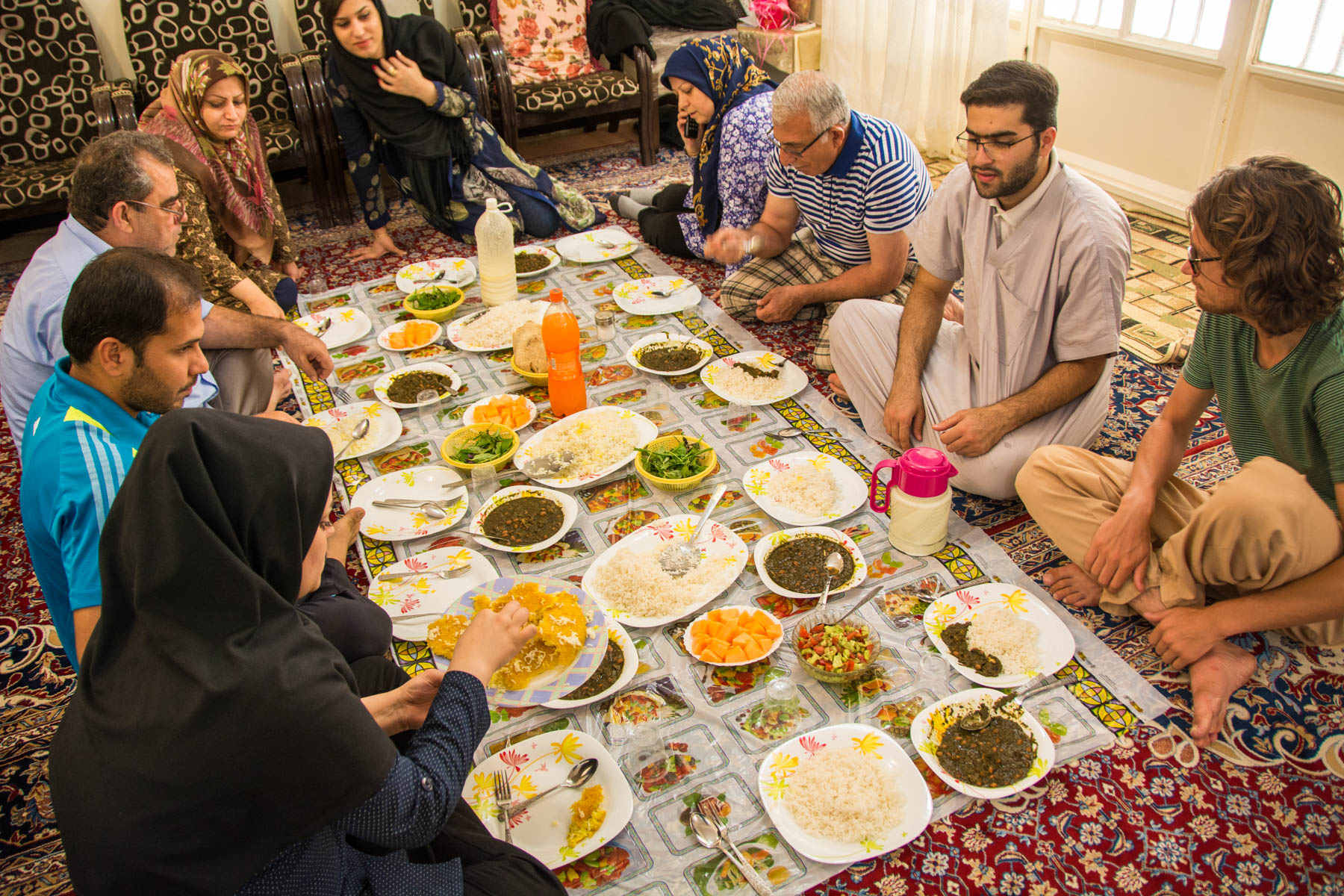
Being literally stuffed with love at a family’s house in Shush. We ended up here after the boy pictured invited us to stay at his home… right after we stepped off of a bus!
Hospitality in Iran
- Iranians love treating foreigners. People you meet are going to want to take you out and pay for everything. Do offer to pay yourself, but if they refuse you 3 or more times (see the explanation of tarof below), just give in and go with the flow.
- Watch out for tarof. In short, tarof is when someone offers something to be polite, not because they want to. It usually occurs in the form of someone offering to you something for free, but can also apply to invitations. To determine if it’s tarof, offer to pay three times. If the person still resists, the offer is legit.
- You don’t need to tip. Tipping isn’t common unless you’re at a really nice restaurant, or you were very, very satisfied with a service you received.
- Take advantage of Couchsurfing if you visit Iran. It’s extremely popular in Iran, and an excellent way to meet locals/arrange homestays. Just be warned that many hosts will expect to be with you all the time. And we mean all the time. To access Couchsurfing in Iran, you need a VPN that works in Iran.
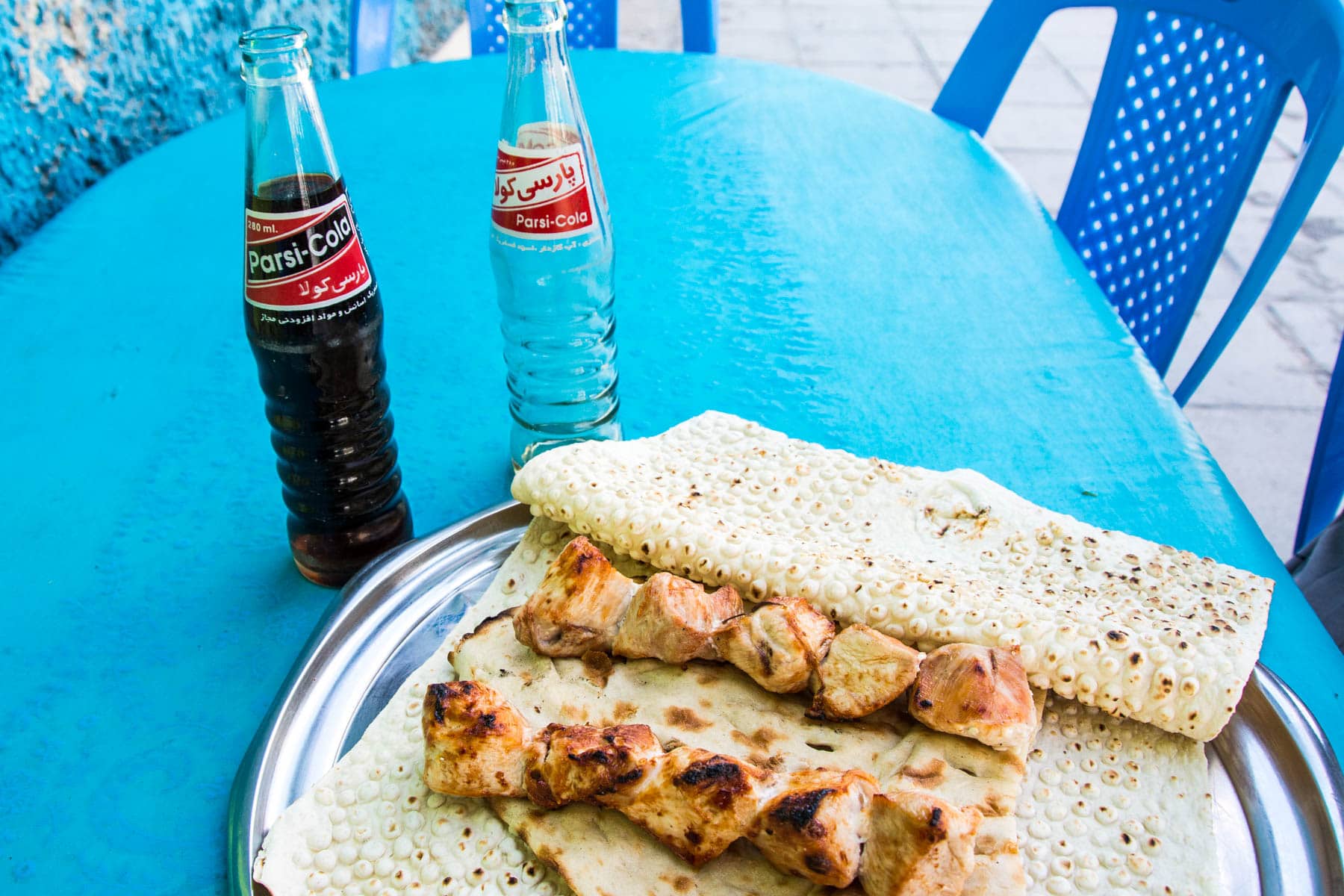
Be prepared to OD on kebabs while in Iran, possibly involuntarily.
Food and drinks in Iran
- Tap water is safe to drink unless stated otherwise. There are also plenty of water fountains all throughout the cities, so bring a reusable water bottle!
- Coffee has recently become popular in Iran. While tea is still the drink of choice for the older generation, coffee has become increasingly popular with younger Iranians. Little coffee shops are popping up all over the place.
- When drinking tea, put a sugar cube in your mouth, then take a sip. This is the Iranian way of drinking tea. Yes, this means you’ll end up consuming a metric sh*t ton of sugar cubes with each cup of tea… also the Iranian way.
- You can often peek in the kitchen to see your options if there isn’t an English menu. Just stare blankly at the Farsi for a bit, shrug, and point to the kitchen. It’ll help you find things other than a kebab.
- Don’t feel pressured to eat kebab when out with Iranians. They’ll often order kebab for you because they assume that’s what you want, and it’s a common choice when eating out since not everyone has the luxury of a charcoal grill in the home.
- Don’t be surprised if you encounter alcohol when you travel to Iran. Just because it’s banned doesn’t mean you can’t find it, as prohibition has taught us. You’ll be fine drinking in private homes, but be wary about consumption in public places.
Pro Iran travel tip: Never leave home without proper travel insurance! We use and recommend World Nomads. Lucky you, they provide travel insurance for Iran!
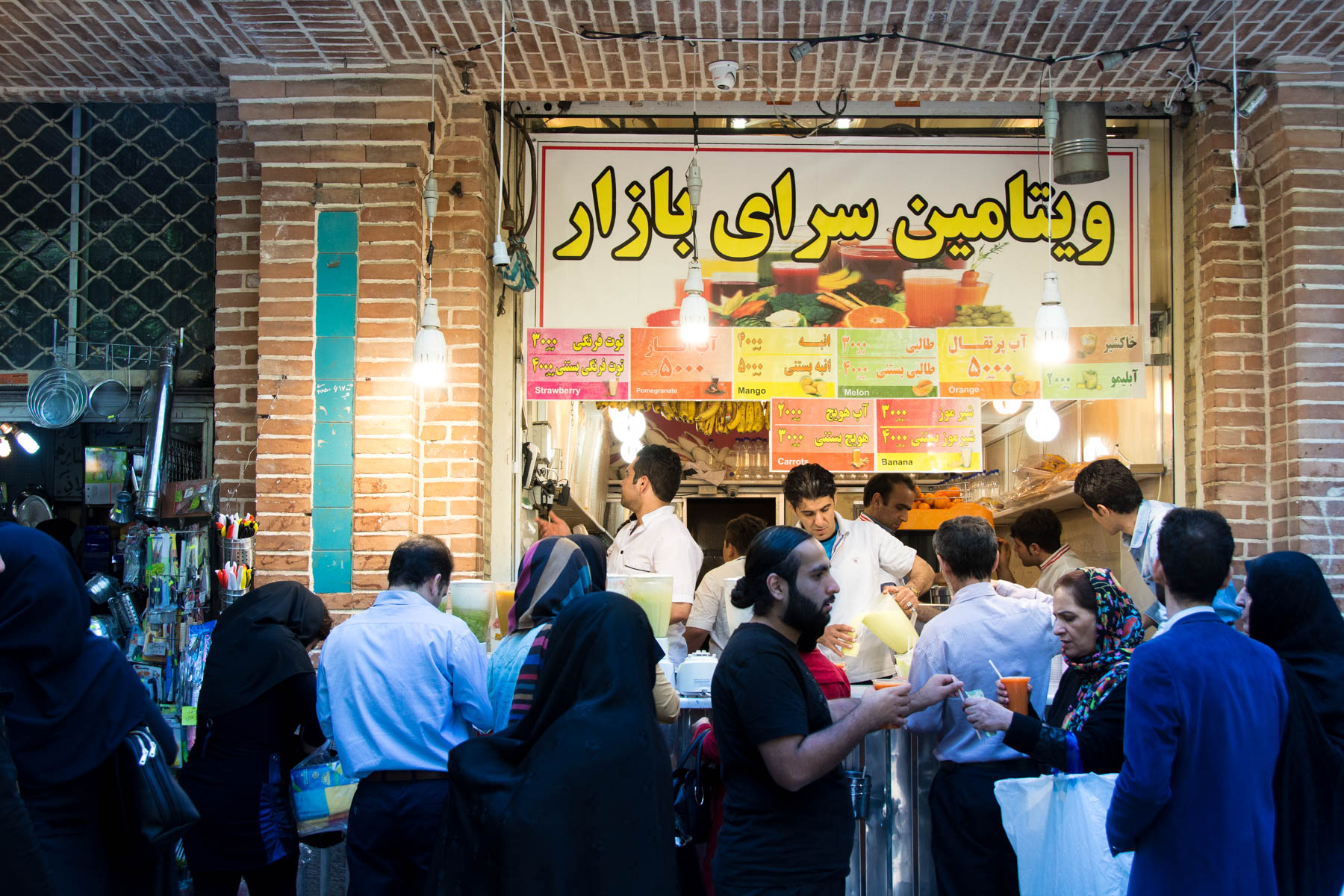
An important aspect of Iranian culture: an addiction to all things blended and delicious!
Culture in Iran
- Persian (Farsi) uses the Arabic alphabet and is written right to left. Numbers will also be different, but confusingly enough, they are written left to right. Try to learn the numbers so you can understand prices and times. You can use bus rides to learn the numbers from road signs along the way.
- Persians are not Arabs. Even though Iran is technically the Middle East, Iranians don’t consider themselves Arabs or Middle Easterners. Iranians are very firm on this and are offended if you mix the two.
- Everything closes between 13:00 and 16:30-ish. During this time people go home to lunch with the family, nap, and avoid the heat. Sights, restaurants, and ice cream places (most important!) will still be open, though.
- Everything also closes on Fridays. Friday is the holy day of the week, and many stores are closed for the whole day. Friday mosques close to non-Muslims as well.
- Lunch and dinner are late. People eat lunch around 14:00, and dinner can be anywhere between 21:00 and midnight!
- No public displays of affection when you visit Iran. It’s illegal to kiss or hold hands in public, though people bend the rules for the latter in big cities. Of course, this doesn’t mean that all things sexual are off-limits—dating is common, and there’s even an active Tinder scene in Iran!
- Don’t wear shoes on carpets. Pack shoes that you can easily take on and off!
- The portraits on billboards and sides of buildings are of martyrs. It’s a “great honor” to die as a martyr for Iran, and the government plays this up by putting their faces on billboards and having martyr murals painted throughout cities.
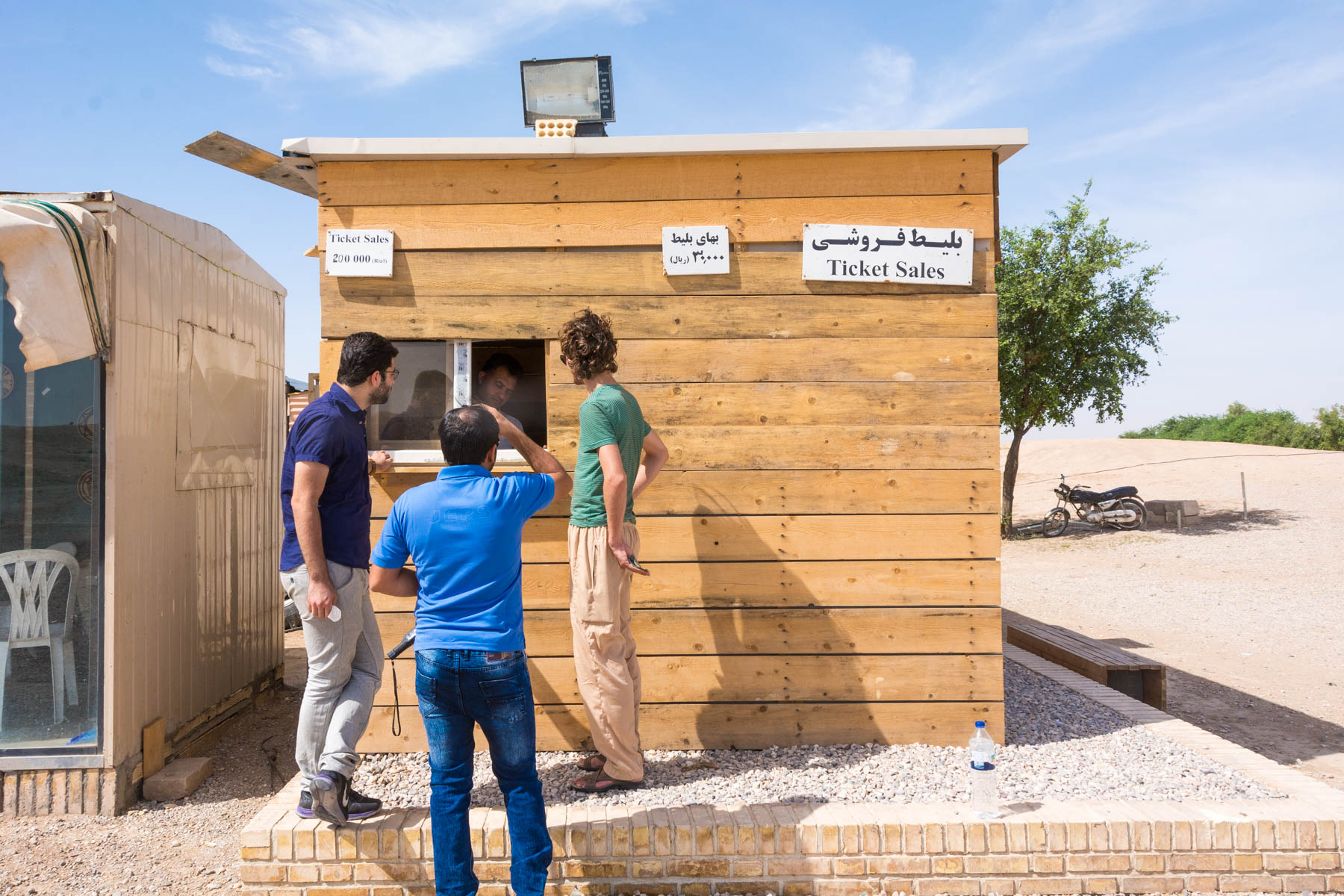
Attempting to haggle down the price of foreigner tickets… unsuccessfully.
Sightseeing in Iran
- The Lonely Planet only offers guidelines. Prices change all the time, and with its long lead time, by the time a Lonely Planet hits the shelves, a considerable amount of information is outdated. Use as a guideline only.
- Foreigner price for sights is usually 6-8 times the local price. And according to locals, foreigner ticket prices are still on the rise. For the budget travelers, the ticket people sometimes bend the rules and give you the Iranian price if you charm them a bit (and it’s not busy). Otherwise, try going in with a local, and have them buy your tickets while you hide.
- Tour agencies often give out free city maps. Check them out–there’s usually interesting things on the maps that you won’t find in guidebooks.
- Visit sights at night when possible. Many religious sites are open in the evening and are much more pleasant: fewer tourists, more locals, cooler weather, and beautiful lighting. Sounds good, right?
Looking for more Iran inspiration? Check out our off-beat Iran itinerary!

When bedbugs attack: the downsides of cheap guesthouses. Not so healthy after all!
Health in Iran
- Carry toilet paper/tissues everywhere when you travel to Iran. Cheap accommodations won’t always have toilet paper, and public toilets definitely don’t. Alternatively, get used to using a bum gun! Remember, you wipe with your left hand, and shake hands with your right.
- If looking for a toilet, ask for a “WC”. In English, that is. It’s more commonly used than “toilet”. If you do want to ask for a toilet, try using the French pronunciation, “toilette”.
- Most toilets are squat toilets. Hotels will sometimes have western toilets, but you’ll be doing a lot of squatting away from home. Start building up those leg muscles!
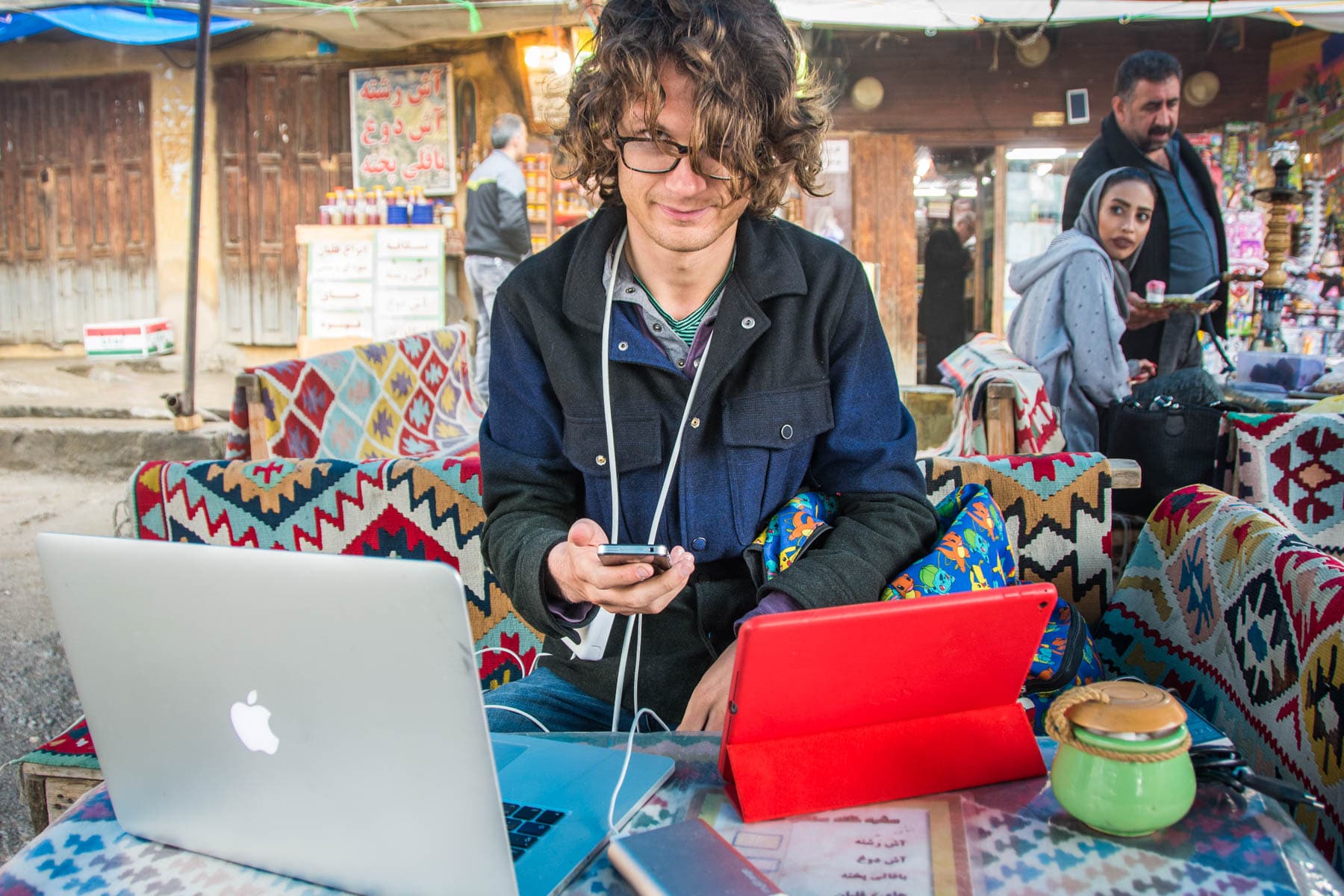
FYI: the internet in Iran will make you want to strangle yourself and/or other innocent things.
Internet & mobile data in Iran
- The internet is censored. Many common social media networks (Facebook, Twitter, Pinterest), Google services (except Gmail), app stores (for paid apps), and western news outlets (BBC, CNN) are blocked, so you’ll need a VPN that works in Iran if you plan on maintaining your internet existence while in Iran.
- Internet is slow and can be hard to find. The government throttles internet speeds, and many cheap guesthouses and hotels outside of the main tourist track in the center of the country don’t have wifi.
- Consider getting an Iranian SIM card. Mobile connections are faster than wifi and SIM cards are cheap. An Irancell SIM card is 500,000 rials, and 10GB of data is 300,000 rials.
- Telegram has recently been blocked. Telegram used to be the most popular messaging app in Iran, but since the government blocked it, more and more Iranians have started using WhatsApp.
- Iran uses European outlets. If your chargers don’t have the two rounded prongs you’ll need an adapter – get your travel adaptor here.
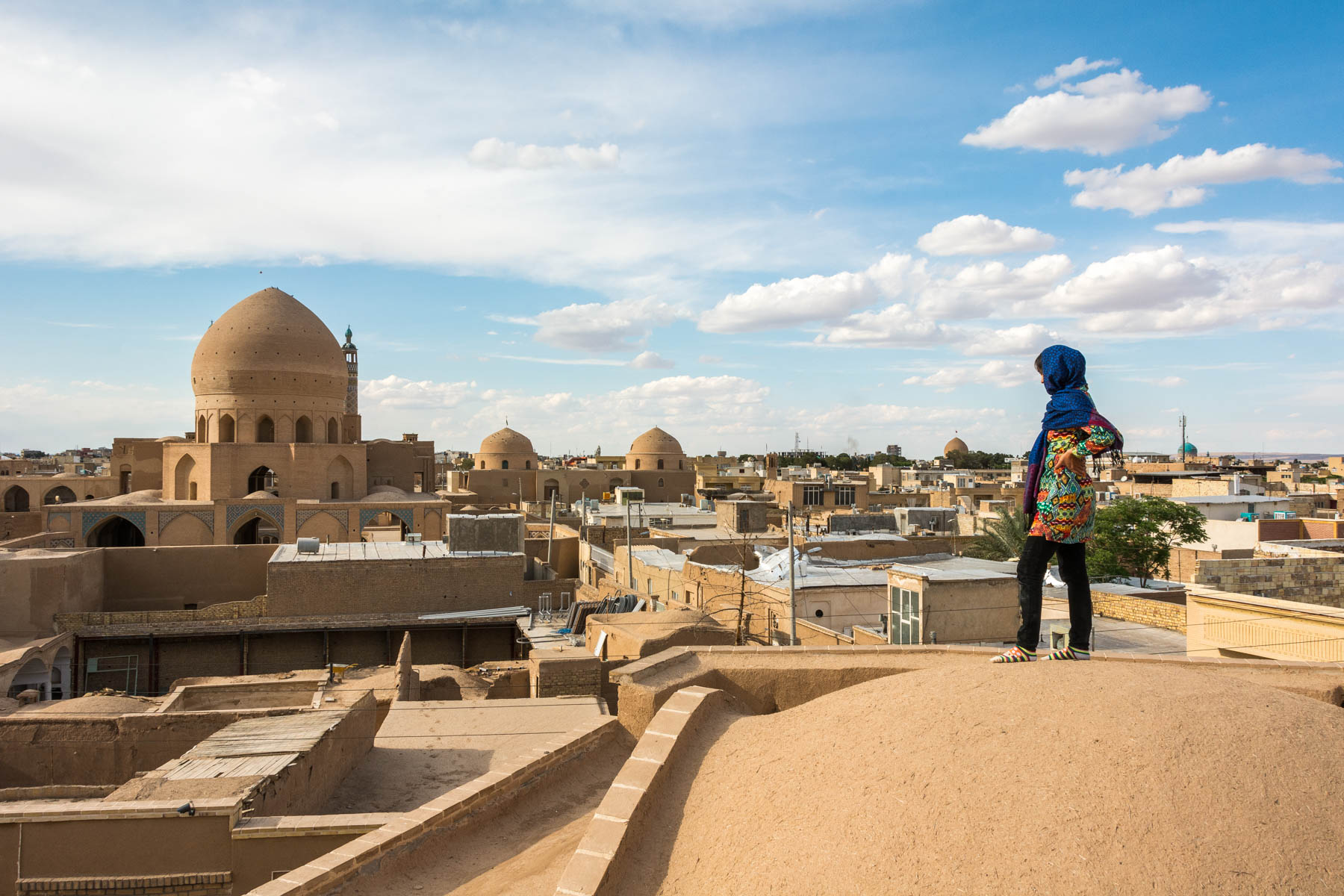
Rocking the demure Iranian ladydress (more formally known as a “manteau”) on the rooftops of Kashan.
Women in Iran
- Women have a strict dress code in the Islamic Republic of Iran. You must wear a headscarf when you travel to Iran, your shirt needs to cover your bum, and you can’t wear shorts or anything with short sleeves. Yay freedom! Tight pants are okay, though.
- Sit in the back of the bus on city buses. Always enter from the middle of the bus, and if you need to pay the driver, do so at the end of the ride by leaning in through the front door after getting out.
- Wear whatever you want at the beach when in the women-only area. Beaches are separated into separate sections for men and women, and a mixed-gender area for families. Alas, you’ll have to cover up if you’re lounging in the mixed area. Don’t forget sunscreen to prevent strange tan lines!
- It’s often okay to take off your hijab in homes or when hiking. Follow other women’s examples in homes. As for the great outdoors, if there’s no one around, who will get you in trouble? You’ll see many Iranian ladies doing the same.
- If a man harasses you, make a scene or firmly turn him away. Punishment for crimes against women is severe, and men are too afraid of being caught to let things progress. The tourist police are also very willing to help, providing you have information or photos they can use to track down offenders.
For more tips on traveling Iran as a woman, check out my female travel guide to Iran.
And there you have it, our master list of things to know when traveling to Iran. Let us know if you have any questions.
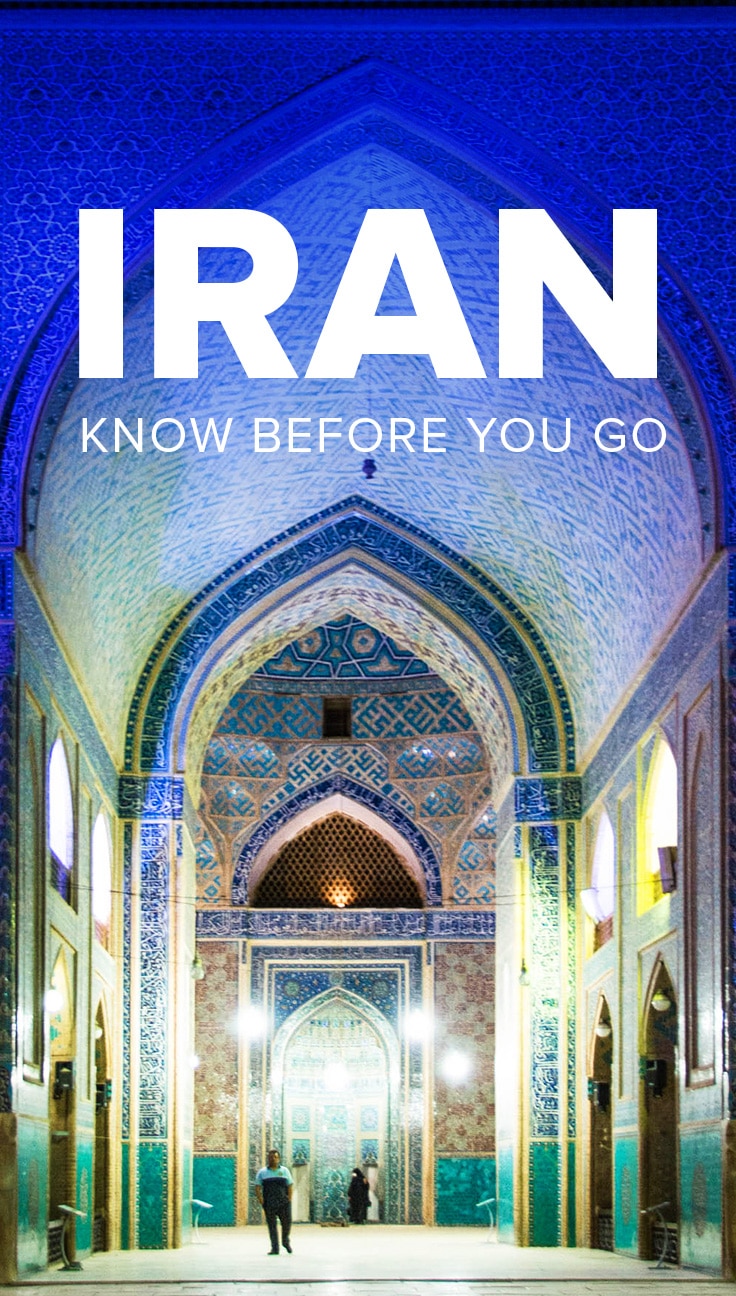
Yay transparency: there are affiliate links in this post. If you buy anything through our links, we get a small commission at no extra cost to you. We promise we only recommend stuff we actually like, and it helps us cover the costs of running the blog!
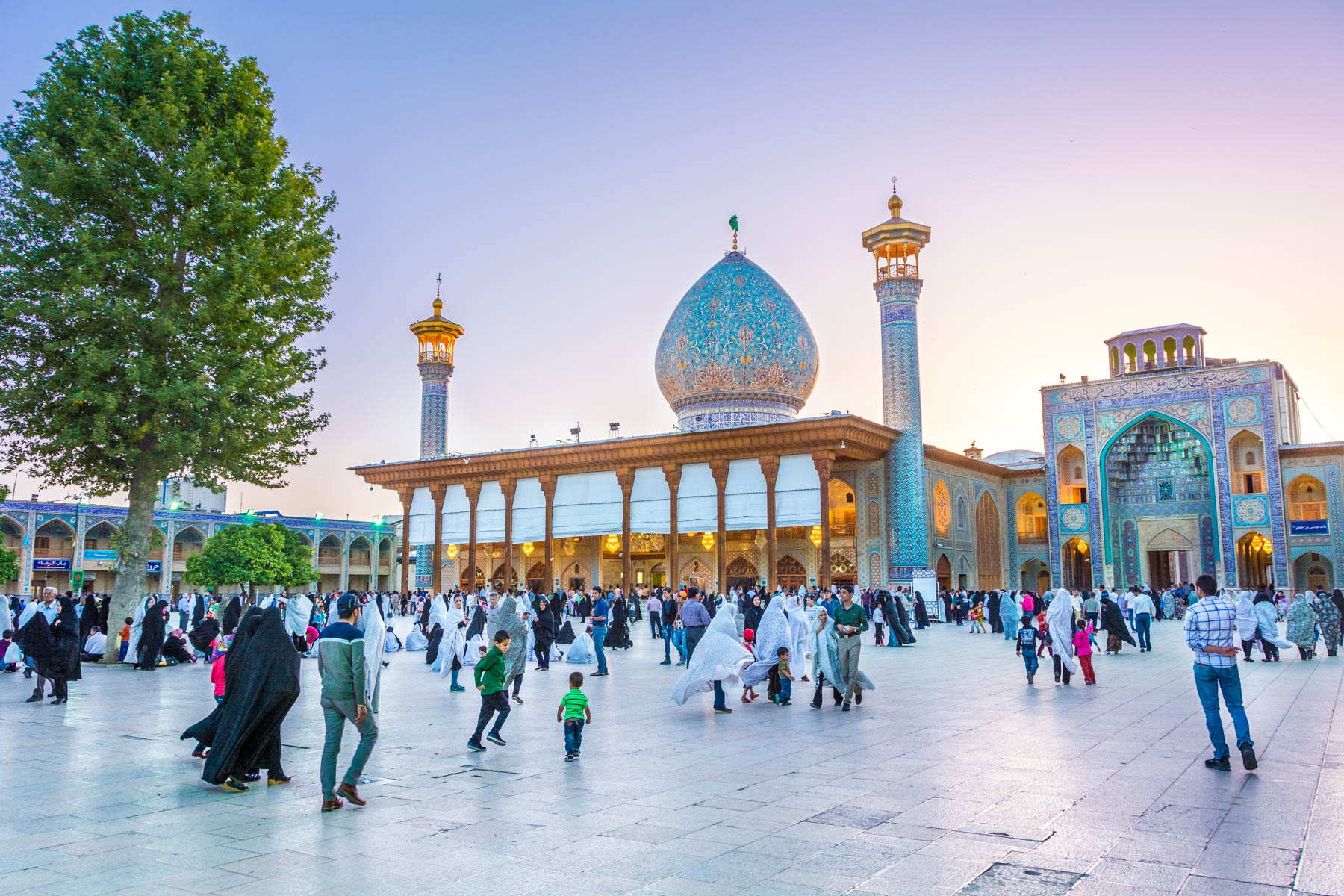


Before Coronavirus quarantine, I was planning a trip to Iran, and I had this website bookmarked with these suggestions. I already followed a couple of tips and got a VPN for traveling, pretty glad I got the 2-year subscription; now, I’ll be able to use it after the quarantine is lifted.
I want to fly iran. call me: +994 403617473
I am very interested in traveling there, but as an American, I am disheartened to learn you have to be with a guide. So, there is no possibility to travel solo?? I am happy to have a guide sometimes, but I hate the idea of being locked into a specific itinerary without any flexibility. Since you have a British passport, did you travel with a guide? How was the experience? Were you able to do your own thing?
Iranian people never say this nonsense!!!!!!!!!
if you decided to travel to iran. as an iranian people i advice you to be in a grope. because you might have some problems if you be only. and the language can be problem for you. i wish you enjoy from my country. and actually iran’s new government has managed the covid-19 very good. don’t worry about it!